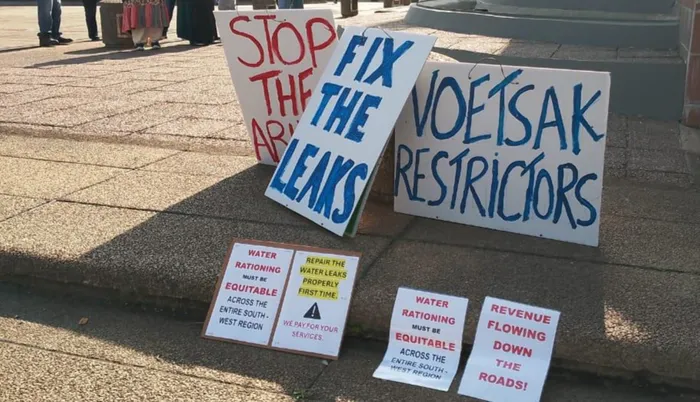
For us, it has to address inequality, poverty and historic injustices while doing so. It must recognise that corruption and failing service delivery are not side issues, says the writer.
Image: Supplied
AS AN ENVIRONMENTAL scientist the preface of my write is centred around environmental concerns and climate change. However, as broad and overwhelming as those may seem, they can also feel disconnected from the everyday struggles we face in South Africa.
What use is talking about carbon credits when people don’t have clean water? How do we talk about renewable energy when people are still freezing in informal settlements? And honestly? The world’s a mess. From Palestine to Gaza, Sudan to Somalia, Ukraine to China and from and from and from. We just did not get it right.
Capitalism and many other "ism’s" has flipped us all right over haven’t they? South Africa exists as a developing country forwarding the African continent in policy and discourse pursuing a deep, just transition. But what does that even mean when you’re living here? It can not only be about pursuing renewable energy with all the technical aspects around wind, solar and hydropower.
For us, it has to address inequality, poverty and historic injustices while doing so. It must recognise that corruption and failing service delivery are not side issues. This means it tackles the lack of basic services such as water, sanitation and healthcare. And it does this while recognising that corruption undermines any chance of a just transition, because public funds are meant to serve communities and meet people’s most basic needs.
So a deep transition isn't just a buzz word. It can't be. And it's not just for supporting green technology. It is there to address the root causes and work from bottom up with the people. Because how can you green the economy while communities burn down to keep warm? And we’ve seen it - people freezing in winter because of poor housing infrastructure. Families illegally connecting electricity just to cook, then turning to gas or fires, which lead to blazes that destroy entire settlements. People losing all they have. People losing their lives.
Those injured hoping for some sort of relief at a local clinic or hospital, praying for staff that would be available to assist them upon arrival or to even access medicine that could be provided to numb out the fact that they just lost everything, never mind the physical wounds they carry. My words fail me when I think of our healthcare system. I, personally, am terribly afraid to step foot in government hospitals, the stories heard are always painful to the ears.
But we have a Constitution, don’t we?
It says:
“Everyone has the right to have access to adequate housing.”
“Everyone has the right to sufficient food and water.”
“Everyone has the right to an environment that is not harmful to their health or well-being.”
Yet we still have people living without safe homes. Without clean water. Without access to a clinic unless they take three taxis and pray there’s staff.
So we ask again: Ungenaphi? Where to from here?
When I did my honours, I looked at small-scale fisheries - and the gap between what’s written in policy and what actually happens on the ground is wild. And this is not just one policy. The gap is everywhere. It’s no surprise young people feel frustrated. We see through the big talk. We have been disillusioned.
As a young person living in this country, I say a deep just transition isn’t just a buzzword. It’s not a checklist. It’s a call to completely reimagine how we serve people - and who gets left behind when we don’t. It starts from the bottom up, not from boardroom deals. It starts with holding municipalities accountable. It starts with us demanding what we’re owed - not as favours, but as rights.
We’re not asking for miracles. We’re asking for the basics. We’re asking for what’s already been promised.
“The people shall govern.”
The Constitution isn’t just a document - it’s a promise. We have the tools. Now we need courage.
Shaakira Davood is the deputy secretary of the Active Citizens Movement.
** The views expressed do not necessarily reflect the views of IOL or Independent Media.
Related Topics: